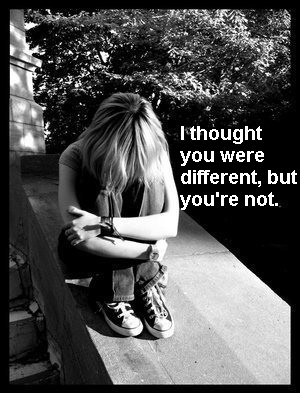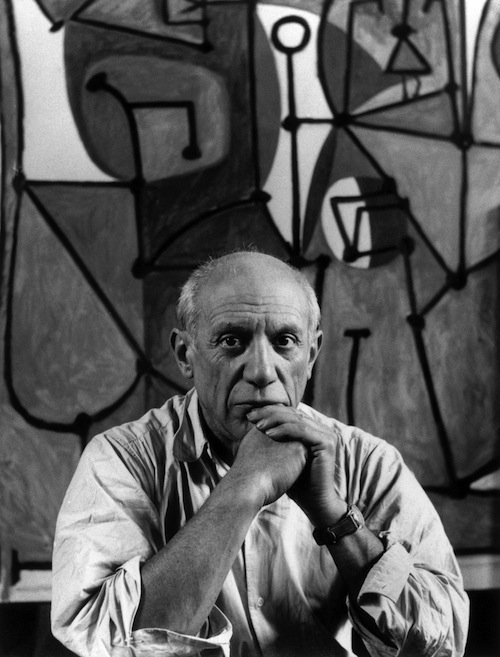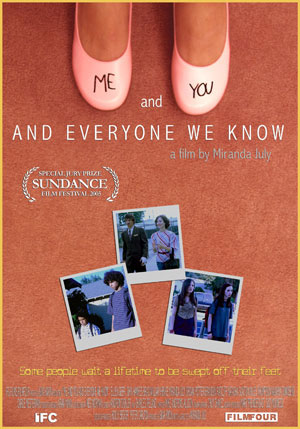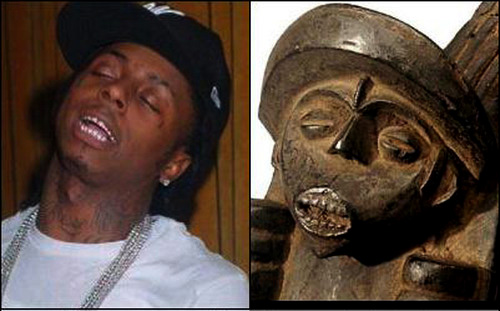My Experience Writing for Muumuu House

Wrote about Tao Lin for Hobart.
Exchanged emails with Tao about what I wrote.
Tao cut and pasted part I’d written about Zac Zellers and Marie Calloway and wrote beneath it “this seems funny to me.”
Replied with a paragraph in which I described Zac Zellers as the “Where’s Waldo” of Ann Arbor.
19 mins later got email from Tao saying “you should write something about this and send it to me.”
How Should A Humon Be, I Hate These Humons: The Great Autobiographical Fiction vs. Anti-Autobiographical Fiction Showdown 2k12/2k13
A thing I’ve been noticing is a formation of camps of a sort along the lines of how people feel about autobiographical fiction. Is this a thing?
I thought of this upon reading the title of a Tumblr post by my friend, James Tadd Adcox, a list of things he’s currently reading. The title: “Take this blue paint, cake it on your pale face. Make yourself something other than this world.” Something other than this world.
What we talk about when we talk about the New Sincerity, part 2

"Hi, How Are You?" cover art by Daniel Johnston (1983); "financially desperate tree doing a 'quadruple kickflip' off a cliff into a 5000+ foot gorge to retain its nike, fritos, and redbull sponsorships " by Tao Lin (2010)
It made me very happy to read the various responses to Part 1, posted last Monday. Today I want to continue this brief digression into asking what, if anything, the New Sincerity was, as well as what, if anything, it currently is. (Next Monday I’ll return to reading Viktor Shklovsky’s Theory of Prose and applying it to contemporary writing.)
Last time I talked about 2005–8, but what was the New Sincerity before Massey/Robinson/Mister? (And does that matter?) Others have pointed out that something much like the movement can be traced back to David Foster Wallace’s 1993 Review of Contemporary Fiction essay “E Unibus Pluram: Television and U.S. Fiction” (here’s a PDF copy). I can recall conversations, 2000–3, with classmates at ISU (where DFW taught and a number of us worked for RCF/Dalkey) about “the death of irony” and “the death of Postmodernism” and a possible “return to sincerity.” Today, even the Wikipedia article on the NS also makes that connection:
Theory of Prose & better writing (ctd): The New Sincerity, Tao Lin, & “differential perceptions”
In the first post in this series, I outlined Viktor Shklovsky’s fundamental concepts of device (priem) and defamiliarization (ostranenie) as presented in the first chapter of Theory of Prose, “Art as Device.” This time around, I’d like to look at the start of Chapter 2 and try applying it to contemporary writing (specifically to the New Sincerity). As before, I’m proposing that one can actually use the principles of Russian Formalism to become a better writer and a better critic.
Viktor Shklovsky wants to make you a better writer, part 1: device & defamiliarization
When I was finishing up my Master’s degree at ISU, I worried that I still didn’t know much about writing—like, how to actually do it. My mentor Curtis White told me, “Just read Viktor Shklovsky; it’s all in there.” So I moved to Thailand and spent the next two years poring over Theory of Prose. When I returned to the US in the summer of 2005, I sat down and started really writing.
I’ve already put up one post about what, specifically I learned from Theory of Prose, but it occurs to me now that I can be even more specific. So this will be the first in a series of posts in which I try to boil ToP down into a kind of “notes on craft,” as well as reiterate some of the more theoretical arguments that I’ve been making both here and at Big Other over the past 2+ years. Of course if this interests you, then I most fervently recommend that you actually read the Shklovsky—and not just ToP but his other critical texts as well as his fiction, which is marvelous. (Indeed, Curt has since told me that he didn’t mean for me to focus so much on ToP! But I still find it extraordinarily useful.)
Let’s talk first about where Viktor Shklovsky himself started: the concepts of device and defamiliarization.
POP: A Polemic on a Contemporary Language-Based “Objectivity”
 I do not like metaphor. My personal education pertaining to literature takes a very French bent, and it is here that Robbe-Grillet himself, king of the nouveau roman one could say, has denounced metaphor, preferring, I suppose, some sort of metonymy, but–if anything–participating in the creation of a style of fiction in which the surface is more important than a subtext.
I do not like metaphor. My personal education pertaining to literature takes a very French bent, and it is here that Robbe-Grillet himself, king of the nouveau roman one could say, has denounced metaphor, preferring, I suppose, some sort of metonymy, but–if anything–participating in the creation of a style of fiction in which the surface is more important than a subtext.
I think that this adherence to the surface, at least in terms of language, is good, positive, because it removes an additional level of signification, which brings us, as a reader, closer to the experience the language itself is hiding, carrying, revealing. Though often, in the creation of atmosphere, metaphor can be adequately used to help evoke a mood, I feel like there are often more interesting ways to do this (and I suppose that here, by “interesting,” I mean “heterogeneous, diverse, wildly more creative”).
READ MORE >
i’m a bullhole cliche / assshit: An Interview with Victoria Trott

When I started reading online literature, sometime in mid-2008, I discovered a short list of bloggers/writers (Tao Lin, Ellen Kennedy, Zachary German) with similar attitudes and approaches to literature. Later, when Muumuu House was established, I found, among them, a new name: Victoria Trott. I read her poems, her blog, and it was all very strange, funny, and poignant. On Halloween 2009, I met her at a late night get together in (where else) Williamsburg. She seemed quiet, estranged, grinning aimlessly. By then she’d sort of disappeared from the online scene, leaving behind only a few publications (not to mention an unreleased forthcoming issue of German’s now-discontinued litmag), an altered moniker, and a lot of questions. In late 2009, she created a hilarious, ingenious Twitter account, and in summer 2010, a wonderful new blog. Finally there was some clarity, openness, continuity, but still, I was curious. Last fall, I compiled a list of questions I had for (and regarding) Victoria in a Gmail draft. Then I emailed her some of those questions, commencing a slow correspondence, spanning three months. Here are the results:
David Fishkind: Hi Victoria, How are you?
Victoria Trott: Hey David, someone bought me breakfast today and I took half of a Ritalin, I feel pretty good. How are you?
How did you get involved with online literature? Or maybe, what is your time line of involvement?
Here’s a timeline of my involvement with online literature, which has the stuff about blog switching, I think
2007 – high school sophomore, read Hikikomori on Bear Parade. showed Tao Lin’s blog to my friend, she said “amoeba ass?” and laughed with a puzzled face.
A List of Things (pt. 1)
1. There is a new issue of Bookslut. In it there is a a really great interview of Kendra Grant Malone by Noah Cicero. Also, some stupid idiot interviewed Michael Earl Craig (again). It’s ok though because Michael Earl Craig is good.
2. I don’t know if people know this, but the NYU creative writing program archives all of its events in podcast form. I listen to this a lot. I’ve listened to that Matthew Zapruder one probably 5 times. There also is an Agriculture Reader reading from the fall of 2009 that I’ve listened to several times.
3. My friend Harriet runs this really nice (print+online) journal called “Her Royal Majesty.” They are now accepting submissions for the next issue.
4. Mike’s (Young’s) book of short stories is now available. Short stories are usually a little bit longer than poems are.
5. I went to this Publishing Genius book tour thing two nights ago in Chicago. It was fun as hell. If you’re in Minneapolis you can go too. (Hurry.)
6. There is a MuuMuu House DVD available. It’s a DVD of a MuuMuu House reading in Ohio (and other things) — featuring Tan Lin, Susan Boyle, Michael Jordan, Marcus Cicero, and Mallory Whitten.
7. After the jump is a semi-NSFW youtube vid. It’s more weird than anything. If you can make it past the first 10 seconds it’s pretty rewarding.
The Brandon Book Crisis: A review

The Brandon Book Crisis (Muumuu House, 2009) by Brandon Scott Gorrell and Tao Lin
A paperback “thriller” about book design published May 25, 2009 in a limited edition of 150 numbered copies. 152 pages, 5.5″ x 7″, © Creative Commons, No Rights Reserved. Features 140+ pages of unedited Gmail chats, text messages, voicemails, and emails between Brandon Scott Gorrell, Tao Lin, and others.
The Brandon Book Crisis is, put simply, a book about the making of a book, which is not an entirely new postmodern conceit, if one thinks about the self-referential Pale Fire (Nabokov), Coming Soon! (John Barthes), or Lunar Park (Bret Easton Ellis), to name a few. ‘Edited,’ or rather, compiled by Brandon Scott Gorrell and Tao Lin, it consists of gmail chats (already aestheticized by Muumuu House), emails, and the occasional frantic text concerning the printing of Brandon Scott Gorrell’s During my nervous breakdown I want to have a biographer present — specifically, its fonts, colors, and unworkable files.





